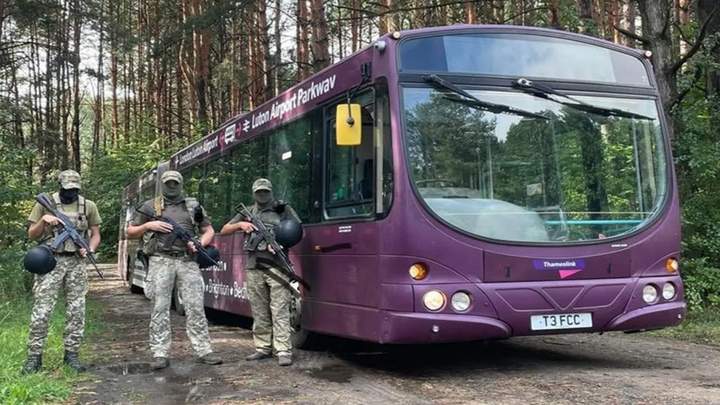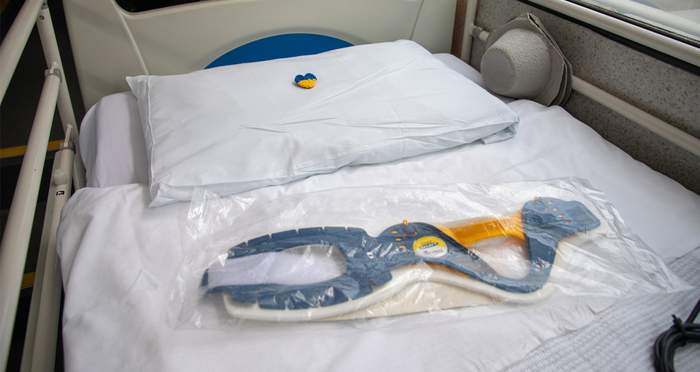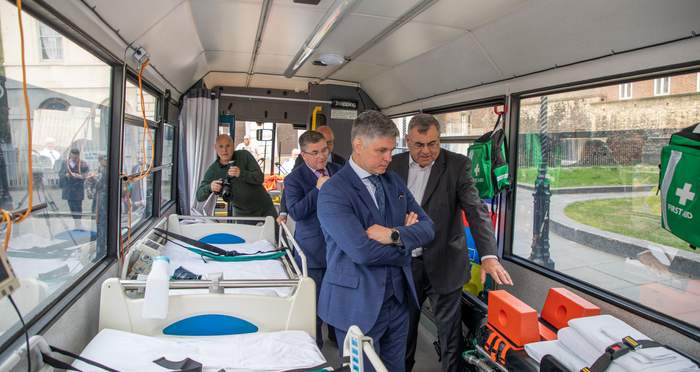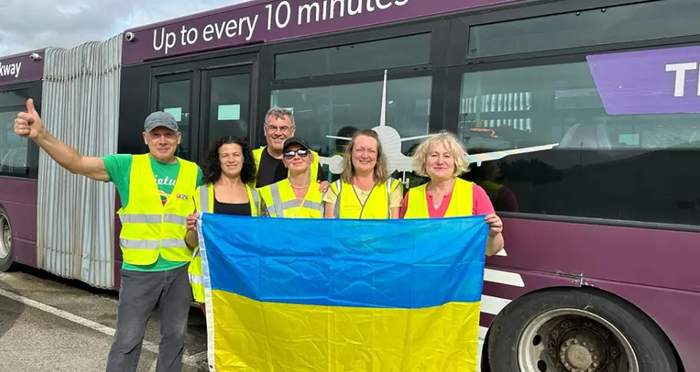
The British charity SHAP, which supplies humanitarian supplies and equipment to Ukraine, has received offers from various cities in England to donate 40 buses of various sizes to our country.
Municipal and private road carriers from all over the UK responded to the call by the Swindon Humanitarian Aid Partnership office in the summer not to dispose of old buses, but to bring them to proper technical condition and transfer them for further centralized delivery to Ukraine in the form of mobile hospitals, mobile school classrooms, etc.
Along with collecting the humanitarian aid, the charity hub has been converting buses into mobile medical, household and educational transport.
This cry gained a lot of publicity after the partnership handed over the first such bus, equipped with hospital beds, monitors and all kinds of equipment, to Ukraine in May this year right on the square near the Palace of Westminster, the House of Lords of Great Britain.
The very first mobile hospital for the Armed Forces of Ukraine. Photo: SHAP
Today, SHAP has launched an appeal to all Ukrainians to raise funds, as the buses received from the trucking companies are in good condition, but their conversion into specialized vehicles and transportation to Ukraine requires a lot of money. The process has begun.
Another delivery of buses to Ukraine took place in the first decade of September. Three long buses previously used to transport passengers from Luton Airport to the nearby railway station of the same name have been donated to the charity by the line’s operator, Go-Ahead Group.
Back in the spring, buses wearing corporate purple livery transported vacationers and their luggage along a two-kilometer route between the airport terminal and the railroad. Recently, however, an environmentally friendly monorail was put into operation, freeing up diesel versions of buses. Part of the rolling stock was donated to a charitable organization for transfer to Ukraine.
The low-floor flexible articulated Volvo B7L buses, which ran on the route every 15 minutes, had previously undergone an extraordinary maintenance and interior sanitization at the carrier’s facility. They were once operated by First Bus in Bristol, which was run by the Thameslink franchise, and then bought by Go-Ahead.

The donors’ hub has reworked the vehicles, and two of them have been specialized for household use. There our defenders can rest, wash, and do laundry – there are showers and toilets in the cabin. One car has been converted into an educational vehicle as a historical and museum classroom.
The delivery took place along a complex logistics route. The trucks were also loaded with humanitarian supplies. At first, the benefactors drove the buses to the port city of Calais in France, where, after long debates with French customs, they finally crossed the EU border and handed the vehicles over to Ukrainian drivers.
Although our guys were terrified of the almost 18-meter-long accordions with right-hand drive, they quickly got used to it and made it all the way to Ukraine without incident.
British long-haul buses with humanitarian cargo in their cabins covered more than 2,400 kilometers from the volunteer hub to the final point of the route. Photo: SHAP








